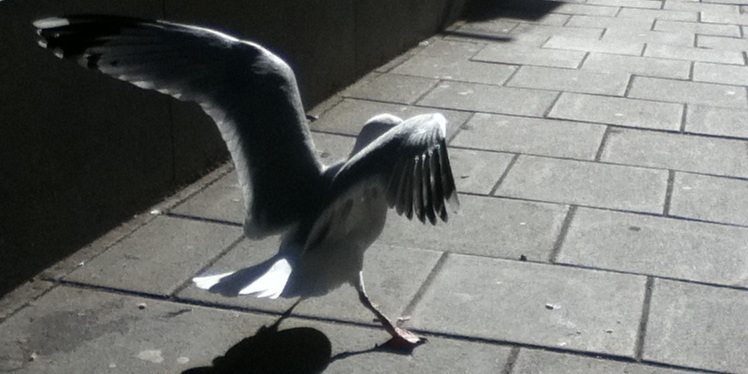A pest controller is moving in to Dundee railway station this week after complaints from workers in nearby offices of seagulls nesting on the roof of the building.
“We have this problem every year,” said one man.
“Our cars are parked next to the station and they are regularly dive-bombed by these pests.”
He added, “Apart from being unpleasant, unhygienic and unsightly, the bird droppings are really corrosive and can damage your paintwork if you’re not quick enough in washing them off.
“Then you park your car the next day and the same thing happens again.
“The breeding season is just around the corner and there are already a few pairs of gulls on the station roof, though I don’t think they have started to nest yet, so this would seem an ideal time to do something about them.”
Problems with gulls in the city centre are regularly reported, with the birds attacking pedestrians, often to snatch food from their hands.
The problem is particularly obvious during the nesting season, due to start within the next few weeks, as the gulls become increasingly territorial as they seek to defend their chicks.
Gulls have become increasingly attracted to cities where they are free from predators, and where food often from discarded takeaways or ripped bin bags is easy to come by.
In a bid to combat them, council staff remove eggs and nests during the breeding season and can also help to “gull proof” buildings
However, while seagulls are viewed as a menace by many, they are considered a species under threat by the Royal Society for the Protection of Birds.
The society says studies show that while the number of herring gulls in cities has increased, the overall population is in decline.
A ScotRail spokesman confirmed that a pest control contract for Dundee station will start this week.
“A contract is in place,” he added.
“It will run for the next 16 weeks and is aimed at managing the situation with regard to gulls and their nests.
“The scheme, which is based on weekly visits and periodic cleans, has been jointly funded by ScotRail and Network Rail.”
